English [🇺🇸]
Aloha guys!
Many here probably know that today is World Cleanup Day. Since 2008, always on the third Saturday of September, the entire world literally stops to clean beaches, rivers, lakes, streets, or any corner of nature. Currently, almost 200 countries have joined the movement, involving people, governments, institutions, and organizations of all types, with a common goal: to see a clean and healthy planet.
Here, I will focus more on beaches because it is the natural environment I frequent most. But the reflections here apply to all natural and urban environments.
Let's begin!
Do you really think that cleaning the beaches solves the problem of trash on the beaches?
You went there, took out trash from the beach, trash that isn't even yours, and disposed of it correctly. You went to the beach the next day, and everything was dirty again. The city hall spends every day cleaning the beaches with its machines. One day after the other.
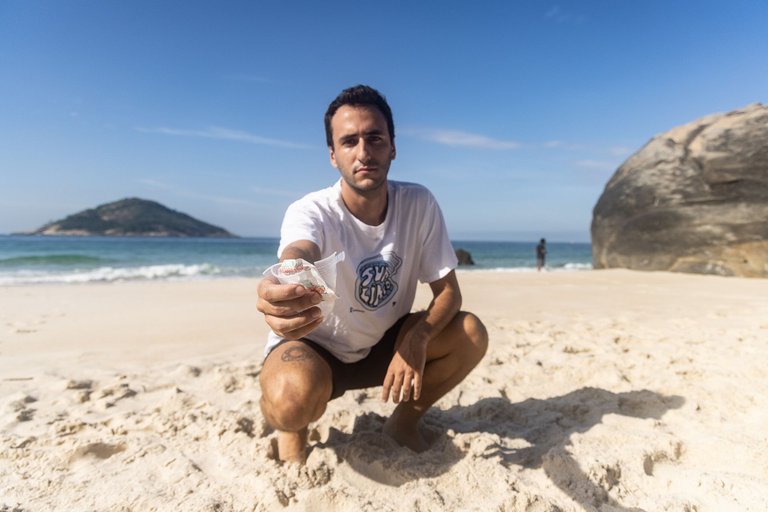
Photo by me.
If, even if every time you go to the beach, you have to take out the trash and dispose of it in a trash can, the problem is still there. Garbage continues to appear every day. So we don't solve the problem when we clean the beach, organize a collective effort, or celebrate World Cleanup Day by cleaning that beach and that environment. The problem is just "postponed" or "masked". Do you agree?
If cleaning doesn't solve the problem, what does?
Simple and direct: nip the evil in the bud.
Okay, but how?
Think with me. There would be no trash there if that trash hadn't even been produced. And perhaps there wouldn't be that trash there if it had been disposed of correctly or sent for recycling.
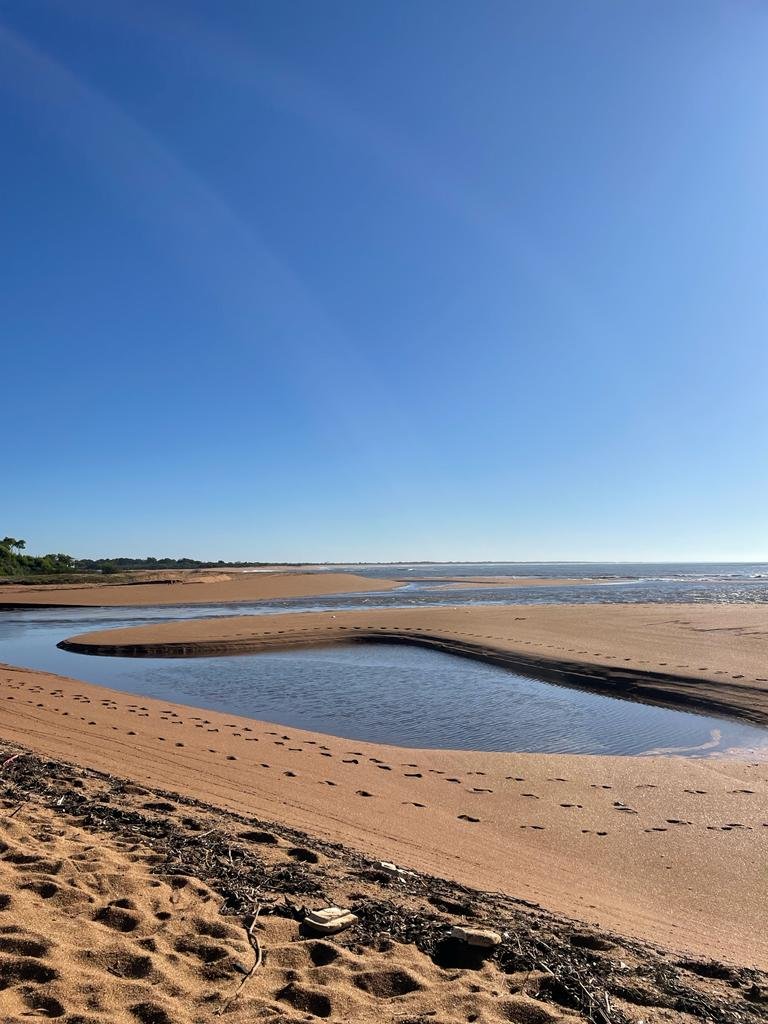
Photo by me
Well, do I have to stop producing garbage, then? Well, preferably yes. This would be the ideal and perfect world, where there is no trash, everything lasts forever, everything is absolutely reusable, nothing breaks, nothing spoils, and nothing wears out.
See, this root is branched. But we don't need to cut the entire root; we can do some "pruning".
Stopping producing waste is undoubtedly the best option, but it is not always the easiest. Even more so in the world we live in, where everything disposable is more comfortable to use, because "you don't need to wash it" (who isn't too lazy to wash dishes, for example?), you can just throw it away. It's much easier to discard and never see that dirty straw, cup, or plate again. It is also much easier to unpack ready-made processed products than to peel fruits and prepare your food.
What options do we have, then? Composting, buying in bulk, using natural products, avoiding disposables... I won't go into too much detail on this subject. I already wrote a complete post about it here. But I really want to emphasize one thing: this is very important.
Pruning this root begins when we change our habits so that the amount of waste we generate daily decreases over time.
This starts with reducing consumption and use of single-use/disposable products. If you can't reduce it, you reuse that product as much as possible, take care of it, and make it last. Until, for some reason, it spoils and is no longer useful to you. This is the time to recycle; It's time to allocate it correctly so that material can be recycled and returned to the production chain.
If you do all this correctly, that product/material will reach beaches, rivers, lakes, streets, etc.
Repeating: Reduce, Reuse, Recycle.
Yes, I just explained to you the concept of the 3 R's, which, unfortunately, I think is something that many people don't understand or have no idea what it means. I'm saying this because myself, being a biologist and super lover of nature and animals, it took me a few years to realize this.
It's simple. First, you try to reduce, start saying no. Failed? Take that and reuse it until you can no longer use it. Is it ruined, isn't it useful? Send it for recycling. Full stop.
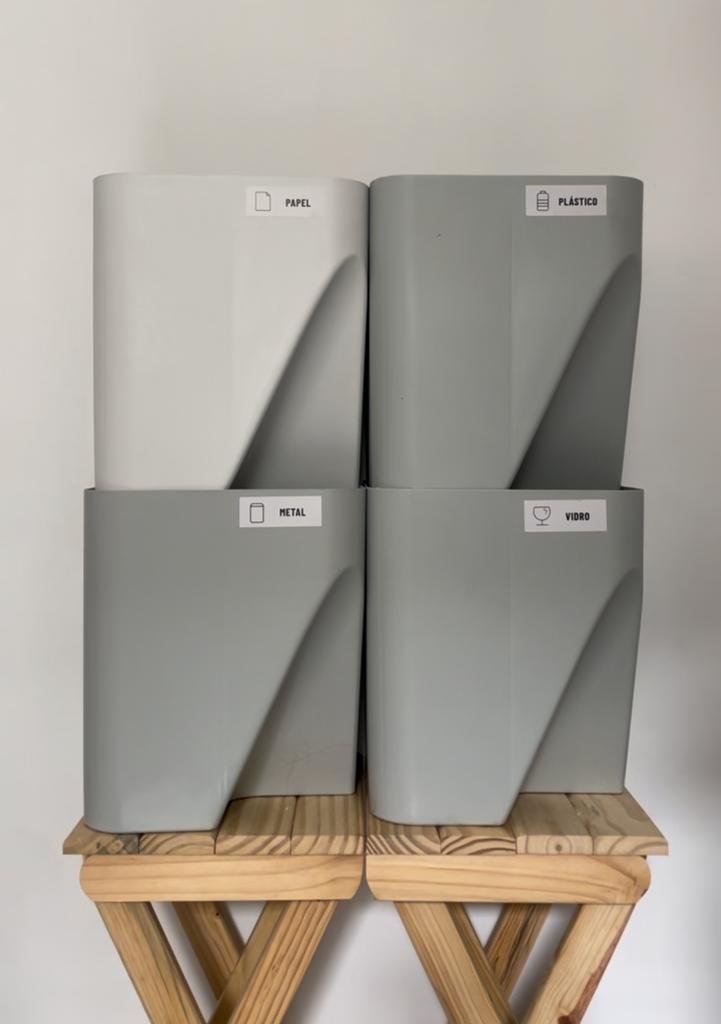
Photo by me.
I know it's not always that simple; we often understand through experiencing and experiencing, and each one goes in their own time. Right?
Shouldn't I clean the beaches then? Am I doing this for nothing?
Oops, calm down! I did not say that.
Cleaning the beaches does not solve the problem, but it is a way to show where the real root of the problem lies. They do make a difference. Today, I see this movement much more as an educational tool to show people how big the problem is.
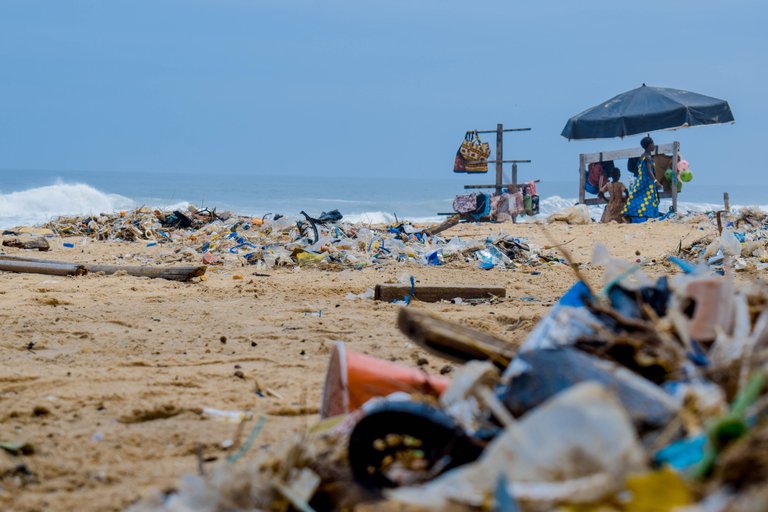
Photo by Lucien Wanda (Pexels)
Maybe, for example, if smokers see that on a beach, the trash they found most were cigarette butts, they will remember every time they threw a cigarette butt on the ground and won't do that again.
Maybe if that person who goes to the beach every weekend to have an açaí or ice cream in a plastic cup finds a lot of plastic cups and spoons on the sand, they might change their mind and always take their cup and cutlery to go have açaí next time.
Or that person who always buys water in a plastic bottle every time they go outside, after seeing several plastic bottles in the sand, from now on, they will always have a reusable bottle with them.
It is by observing and experimenting that we learn. I've seen so many bizarre things on beaches that it spins my head. Refrigerator door, shoes, television, sofa, clothes, lamps... the list is endless.
The questions that remain then are: How did it get there? Where did it come from? Which path did it take? How long did it take to get here?
I don't know what time/day you are reading this post. But I wanted to leave this "challenge" here. Did you participate in a beach (or any environment) cleanup today? Think about every piece of trash and garbage you found. How could that be avoided? How do we stop that trash from getting there?
That's how I started to reflect and started to change my habits. I'm not perfect. I still generate an amount of waste in my daily life that I still think is huge. But I try to go through this entire path of the 3 R's with each object/product/material I consume.
All this is to prevent my beach from having less trash every day.
It worked that way for me, and I hope it works for you too!
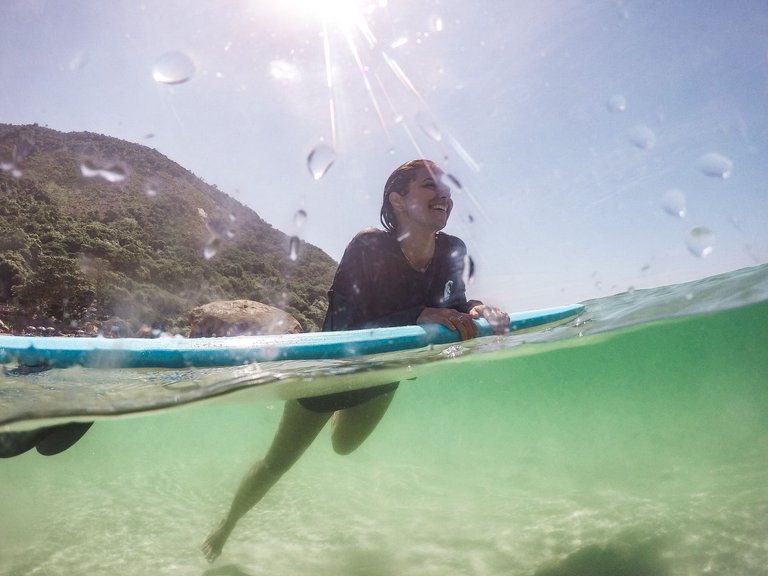
Yayy, that's me! Photo by @conradoreis
Thank you to those who read this far!
Did it make sense to you? What have you been up to? I would love your comment!
About me
Biologist, Photographer, Content Producer, and Community Builder. Please take a look at my introduction post to get to know me better.
My social networks:
- Personal Instagram – me, my husband, my cats, sustainability, biology curiosities, and adventures: @crisciacm
- Professional Instagram – surf, nature, and people photos: @crisciacesconettophoto
- Youtube Channel - surf videos: @crisciacesconetto
- My profile at Thatsgnar.ly - crisciacesconetto
- Twitter – Don't know what to do there but it exists: @crisciacm
Português - BR [🇧🇷]
Aloha galera!
Provavelmente muitos aqui sabem que hoje é celebrado o Dia Mundial de Limpeza. Desde 2008, sempre no terceiro sábado de setembro, o mundo literalmente inteiro para pra limpar praias, rios lagos e ruas ou qualquer cantinho da natureza. Atualmente quase 200 países já aderiram ao movimento, envolvendo pessoas, governos, instituições e organizações de todo o tipo, com um objetivo em comum: ver um planeta limpo e saudável.
Aqui eu vou focar mais em praias, porque é o ambiente natural que mais frequento. Mas as reflexões aqui servem pra todos os ambientes naturais e urbanos.
Você acha mesmo que limpar as praias resolve o problema do lixo nas praias?
Você foi lá, tirou lixo da praia, lixo que nem e seu e descarta da forma correta. No dia seguinte você foi a praia e estava tudo sujo de novo. A prefeitura passa todos os dias limpando as praias com as suas máquinas. Um dia após o outro.

Foto de minha autoria.
Se, mesmo que toda vez que você vai a praia, você tem que tirar lixo que está nela e descartar em alguma lixeira, o problema continua ali. O lixo continua aparecendo, todos os dias. Então a gente não resolve o problema quando a gente limpa a praia ou organiza um mutirão ou celebra o dia mundial da limpeza limpando aquela praia, aquele ambiente. O problema é apenas “adiado” ou “mascarado”. Concordam?
Se limpar não resolve o problema, o que resolve então?
Simples e direto: cortar o mal pela raiz.
Ok, mas como?
Pensa comigo. Não teria lixo ali se aquele lixo nem tivesse sido produzido. E talvez também não teria aquele lixo ali se ele tivesse sido descartado corretamente ou tivesse sido enviado para a reciclagem.

Foto de minha autoria
Oras, eu tenho que parar de produzir lixo então? Bom, de preferência sim. Esse seria o mundo ideal e perfeito, um mundo onde não existisse lixo, onde tudo durasse para sempre, tudo é absolutamente reutilizável, nada quebra, nada estraga e nada desgasta.
Veja só, essa raiz é ramificada. Mas a gente não precisa cortar a raiz inteira, da pra fazer uma “poda”.
Parar de produzir lixo é, certamente, a melhor das opções, mas nem sempre é a mais fácil. Ainda mais no mundo em que vivemos, onde tudo que é descartável é mais confortável de usar, porque “não precisa lavar” (quem aí não tem preguiça de lavar pratos, por exemplo?). É muito mais fácil descartar e nunca mais ver aquele canudo, copo ou prato sujo. Assim como também é muito mais fácil desembalar produtos processador e prontos do que descascar frutas e fazer sua comida.
Quais são as opções que a gente tem então? Compostar, comprar a granel, usar produtos naturais, evitar descartáveis... não vou entrar muito em detalhes nesse assunto, já escrevi um post completo sobre isso aqui. Mas eu quero muito frisar uma coisa, isso é muito importante.
A poda dessa raiz começa quando a gente muda os nossos hábitos e de uma forma que a quantidade de lixo que a gente gera diariamente vai diminuindo ao longo do tempo.
Isso começa com a redução do consumo e do uso de produtos de uso único/descartáveis. Se você não consegue reduzir, você reutiliza aquele produto o máximo que você puder, cuida e faz durar. Até que por algum motivo ele estraga e ele não tem mais utilidade pra você. Essa é a hora de reciclar; é hora de destinar corretamente pra que aquele material possa ser reciclado e volte para a cadeia de produção.
Se você fizer tudo isso certinho, aquele produto/material muito difícil vai chegar nas praias, rios lagos, ruas, etc.
Repetindo: Reduzir, Reutilizar, Reciclar.
Sim, eu acabei de te explicar o conceito dos 3 R’s, que infelizmente eu acho que é uma coisa que muitas pessoas não entendem ou realmente não fazem noção do que realmente significa. Eu to falando isso porque eu mesma, sendo bióloga e super amante da natureza e dos animais, demore alguns anos pra perceber isso.
É simples. Primeiro você tenta reduzir, comece a falar não. Não conseguiu? Pega aquilo e reutiliza até não dar mais. Estragou, não serve? Manda pra reciclagem. Ponto final.

Foto de minha autoria.
Eu sei que nem sempre é tão simples assim, muitas vezes é só vivenciando e experimentando que a gente entende, e vai cada um no seu tempo. Beleza?
*** Eu não devo limpar as praias então? Tô fazendo isso à toa?***
Opa, calma lá! Eu não disse isso.
Limpar as praias não resolve o problema, mas é um caminho para mostrar onde está a verdadeira raiz do problema. Elas fazem alguma diferença sim. Eu vejo hoje esse movimento muito mais como uma ferramenta educacional para mostrar para as pessoas qual é o tamanho do problema.

Foto de Lucien Wanda (Pexels)
Talvez, por exemplo, se as pessoas que são fumantes verem que numa praia o lixo que ela mais encontrou foi bituca de cigarro, ela vai lembrar de toda vez que jogou uma bituca de cigarro no chão e não vai mais fazer isso.
Talvez se aquela pessoa que vai todo fim de semana pra praia tomar um açaí ou sorvete num copo de plástico encontrar muitos copos e colheres de plástico na areia, ela pode mudar de ideia e sempre levar o seu copo e talher pra ir tomar açaí das próximas vezes.
Ou aquela pessoa que sempre compra água na garrafinha plástica fora de casa, depois de ver várias garrafas plásticas na areia, a partir de agora sempre vai ter consigo uma garrafinha reutilizável.
É observando e experimentando que vamos aprendendo. Eu já vi tantas coisas bizarras nas praias que chega a dar um nó na cabeça. Porta de geladeira, sapato, televisão, sofá, roupa, lâmpadas... a lista é infinita.
As perguntas que ficam então são: Como aquilo foi parar ali? De onde veio? Que caminho fez? Quanto tempo demorou pra chegar aqui?
Eu não sei que horas/que dia você ta lendo esse post. Mas eu queria deixar esse “desafio”. Você participou de uma limpeza de praia (ou de qualquer ambiente) hoje? Pensa em tudo o que você viu que foi encontrado de lixo. Como aquilo poderia ser evitado? Como fazer com que aquele lixo não chegue ali?
Foi assim que eu comecei a refletir e comecei a mudar meus hábitos. Eu não sou perfeita, eu ainda gero uma quantidade de lixo no meu dia a dia que ainda acho grande. Mas eu tento percorrer todo esse caminho dos 3 R’s como cada objeto/produto/material que eu consumo. Tudo isso pra evitar que a minha praia tenha menos um lixo todo dia.
Funcionou dessa forma pra mim e eu espero que funcione pra você também!

Olha eu ai! Foto de @conradoreis
Obrigada por quem leu até aqui!
Fez sentido pra você? O que você tem feito? Adoraria seu comentário!
Sobre mim
Bióloga, Fotógrafa, Produtora de Conteúdo e Construtora de Comunidades. Dá uma olhada no meu post de introdução pra me conhecer melhor.
Minhas redes sociais:
- Instagram pessoal – eu, meu marido, meus gatos, sustentabilidade, curiosidades biológicas e aventuras: @crisciacm
- Instagram profissional – fotos de surf, natureza, e pessoas: @crisciacesconettophoto
- Canal no Youtube - videos de surf: @crisciacesconetto
- Meu perfil no Thatsgnar.ly - crisciacesconetto
- Twitter – Não sei o que fazer por lá, mas existe: @crisciacm
Hola amigo, hermoso post para concientizar a las personas a mantener limpias nuestra playas. Esto es problema de todos.
Gracias!!
I am a champion of recycling, but it is also made easy. I van take my broken fridge and electrics to the nearest recycling station. At the very same spot I can pick up hummus for my plants.
Paper and residual waste can be taken to our waste storage and thrown away separately. Milk cartons and plastic and aluminium is collected separately too.
The full infrastructure is provided, and there is still a bunch of idiots not recycling their waste and it all ends up in the normal house waste causing the storage to overflow…
People are not learning.
I get recycling fed to me since I was a child and still there is a hole lot of people who just do not care.
Nicely done and said!! I don’t have all this infrastructure, but I do what I can to make sure that every tiny bit of waste in my home has its proper destination. I just do it because one day I sought for information because I started to care and to question. I know how it feels because I was once someone who didn’t care that much, you know? Either way, I still keep making the same questions as you. Something that should be so easy, and people still don’t get it 🫠
Hello dear friend @crisciacm good morning
Excellent post, your words invite deep reflection.
I hope that at some point people become aware of what is happening.
May you enjoy the weekend
Thanks my friend! Have a good weekend you too!!
Your post was manually curated by @Shiftrox.
Delegate your HP to the hive-br.voter account and earn Hive daily!
🔹 Follow our Curation Trail and don't miss voting! 🔹
Obrigado por promover a comunidade Hive-BR em suas postagens.
Vamos seguir fortalecendo a Hive
Congratulations @crisciacm! You have completed the following achievement on the Hive blockchain And have been rewarded with New badge(s)
Your next target is to reach 4250 upvotes.
You can view your badges on your board and compare yourself to others in the Ranking
If you no longer want to receive notifications, reply to this comment with the word
STOPCheck out our last posts:
An important message, thank you for posting it!
Perhaps the most important part is the “start saying no” as that can influence the manufacturers of the rubbish.
Yesss, I agree! This is the most difficult step but the most important one :)